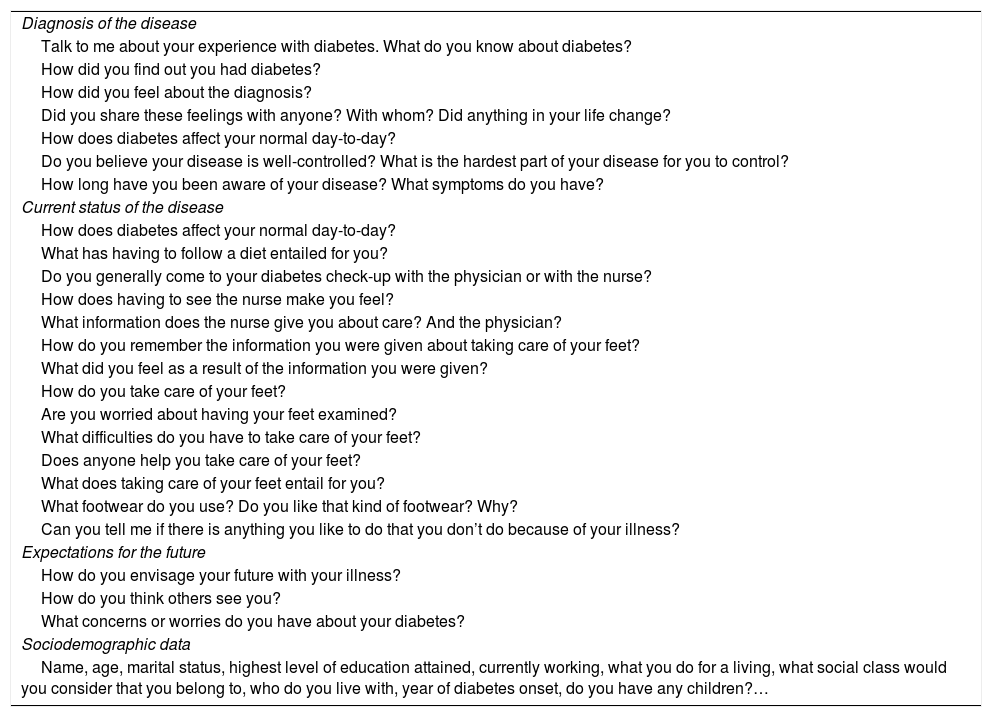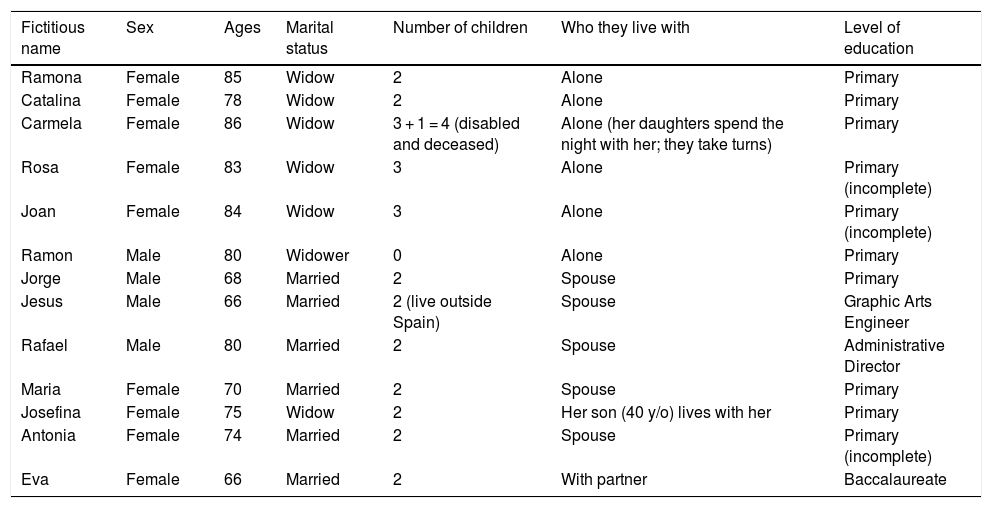To understand the experiences of adults over 65 years of age with type 2 diabetes mellitus, regarding foot self-care.
MethodQualitative phenomenological study with a descriptive approach. It is carried out in the facilities of the Primary Care Center of Les Planes de Sant Joan Despí, Barcelona, belonging to the Catalan Institute of Health. For the data collection, a semi-structured and individual interview was used, with a script of basic aspects to be explored, not closed and focused on the objectives of the research. The interviews were carried out between June 2019 and December 2020. A thematic analysis was carried out concomitantly with the collection of these.
ResultsA final sample of 13 persons (4 men and 9 women) participated in the study. Adherence to diabetic foot self-care recommendations is irregular. Participants explain risky behaviours despite knowing that they can cause injury to feet previously considered high risk. The evaluation of the podiatrist supposes an economic cost that some people cannot afford.
ConclusionsThe nurse has to do an exhaustive follow-up of how persons with diabetes take care of her feet, insisting on preventive recommendations not only in the annual review but every time the person attends the diabetes follow-up consultation. Effective nurse-podiatrist communication is needed to improve prevention and follow-up of people at risk of diabetic foot disease.
Entender las vivencias de los adultos mayores de 65 años con diabetes mellitus tipo 2 respecto al autocuidado de los pies.
MétodoEstudio cualitativo fenomenológico de enfoque descriptivo. Se lleva a término en las dependencias del Centro de Atención Primaria de Les Planes de Sant Joan Despí, Barcelona, perteneciente al Instituto Catalán de la Salud. Para la recogida de datos se utilizó una entrevista semiestructurada e individual, con un guion de aspectos básicos a explorar, no cerrado y centrado en los objetivos de la investigación. Las entrevistas se llevaron a cabo entre junio del 2019 y diciembre del 2020. Se realizó un análisis temático siendo concomitante a la recogida de estos.
ResultadosUna muestra final de 13 personas (4 hombres y 9 mujeres) participaron en el estudio. La adherencia a las recomendaciones del autocuidado del pie diabético es irregular. Los participantes explican conductas de riesgo a pesar de saber que pueden suponer una lesión para unos pies considerados previamente de alto riesgo. La valoración del podólogo supone un coste económico que no pueden permitirse algunas personas.
ConclusionesLa enfermera ha de hacer un seguimiento exhaustivo de cómo las personas con diabetes cuidan sus pies, insistiendo en las recomendaciones preventivas no sólo en la revisión anual, sino cada vez que la persona acude a la consulta de seguimiento de la diabetes. Es necesaria una comunicación efectiva enfermera-podólogo para mejorar la prevención y el seguimiento de las personas con riesgo de sufrir pie diabético.









